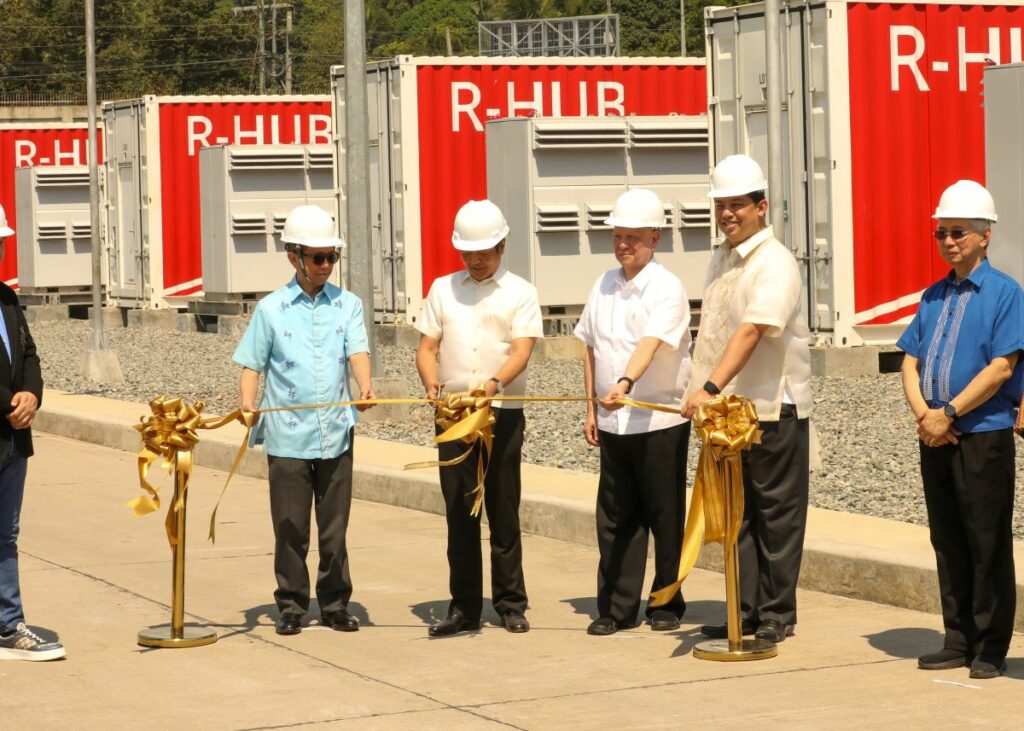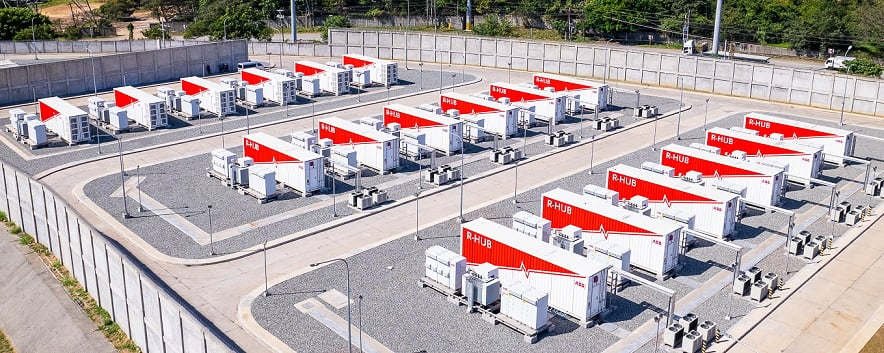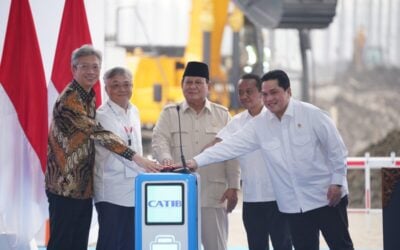
It is “vital” that energy storage systems (ESS) are incorporated into the energy infrastructure of the Philippines, the country’s president has said.
Speaking at the inauguration of a large-scale battery energy storage system (BESS) project a few days ago, president Ferdinand Marcos Jr pointed to the technology as a solution to national energy security challenges.
Enjoy 12 months of exclusive analysis
- Regular insight and analysis of the industry’s biggest developments
- In-depth interviews with the industry’s leading figures
- Annual digital subscription to the PV Tech Power journal
- Discounts on Solar Media’s portfolio of events, in-person and virtual
In addition to energy security, storage can help the Philippines energy sector to become more sustainable and cleaner, while also making energy more affordable and creating employment opportunities, according to the politician.
“Given the increasing generation of renewable energy, it is vital then that we advance and incorporate Energy Storage Systems, or ESS, in our overall energy infrastructure,” Marcos said.
The president took part in the unveiling of a BESS project by major Philippine power company SMC Global Power, in the municipality of Limay in the Luzon island province of Bataan. The grid-scale facility is one of a combined 90MWh of BESS being built at SMC Global Power thermal power plants in the region.
That too is part of a wider buildout by the power company – it aims to complete the last of its 32 BESS projects totalling about 1,000MWh, across the country by the end of this year.
As reported by Energy-Storage.news, global energy storage system integrators ABB, Fluence and Wärtsilä were appointed to work on the portfolio under engineering, procurement and construction (EPC) contracts, while Samsung supplied battery modules.
Filipino power generation and utility companies like SMC Global Power are locked in something of an arms race to deploy batteries at their power plants, DNV energy storage lead for the Asia-Pacific region George Garabandic said in a recent interview.
Speaking to our quarterly journal PV Tech Power (vol.33), Garabandic said that power plant operators in the Southeast Asian country are responsible for delivering ancillary services, such as frequency response, to balance the grid. Unlike thermal power plants running on gas, coal or other fossil fuels, batteries have microsecond response times.
They also don’t require fuel, which has fluctuating supplies and costs, or as much time or money spent on maintenance. In other words, they can increase the operational efficiency of ancillary services delivery and generate cost savings, Garabandic said.
Garanbandic’s team recently worked on testing and certifying the Southeast Asian region’s largest BESS project to date, a 200MW/285MWh system in Singapore, which came online just six months after project developer Sembcorp was awarded the contract by the national Energy Market Authority (EMA).
Battery storage can help ‘avert power crisis’ in Philippines
SMC Global Power is part of the Philippines conglomerate San Miguel Corporation (SMC). Marcos said the 1,000MWh portfolio will make it one of the world’s largest grid-scale battery system operators. The BESS technology also supports a national goal of sourcing 35% of its total energy requirement from renewable energy by 2035.
“Our BESS facilities will support the country’s power grid by storing excess power from existing plants, and injecting this power back, when and where it is needed, within milliseconds – ensuring power quality is stable, and reaches users all over the country,” SMC president and CEO Raymond Ang said at the inauguration event.
Ang claimed the SMC Global Power BESS network will be largely to thank for the Philippines grids being able to integrate up to an estimated 5,000MW of renewable power.
“With battery energy storage, we can solve the problem with most renewable energy sources, which is intermittence, due to the irregularity or seasonality of solar and wind power sources,” Ang said.
The CEO also noted that the government is “working to avert a power crisis,” but that getting new generation facilities online will take time. The BESS network meanwhile is “is already here, and it can provide immediate mitigation to the power crisis,” according to Ang.

SMC was actually responsible for the country’s first-ever large-scale BESS, a 10MWh system at a power station in the municipality of Masinloc, also in Luzon, back in 2016. The company is set on expanding its rapidly-growing fleet further: of a further 2,000MW of BESS projects to have won approval from the national Board of Investments, SMC Global Power projects account for about 95%.
Earlier this year, the Philippines Department of Energy (DOE) published a set of proposed changes to rules and regulations that it hopes will ease the integration of energy storage into energy markets.
President Marcos commented at the Limay ribbon-cutting that the current rules and legislation need to catch up with technology developments, adding that his administration would extend all support mechanisms to create a mutually beneficial partnership between investors in energy storage and renewable energy, and the country.
“We will improve the policy and regulatory framework for the renewable energy (RE) industry, especially for the ESS technology, to encourage the further development of our fledgling renewables industry.”
“We will streamline and harmonise the regulatory framework, at the national and local levels, to ensure ease of doing business, to take down unnecessary regulatory burdens, and this is all part of our agenda to improve bureaucratic efficiency and sound fiscal management for a much better, more streamlined, more efficient system,” Marcos said.
The country is already the SouthEast Asian leader in battery storage, with BloombergNEF finding that more than 80% of energy storage installations in the region in 2022 were in the Philippines.
Energy-Storage.news’ publisher Solar Media will host the 1st Energy Storage Summit Asia, 11-12 July 2023 in Singapore. The event will help give clarity on this nascent, yet quickly growing market, bringing together a community of credible independent generators, policymakers, banks, funds, off-takers and technology providers. For more information, go to the website.






